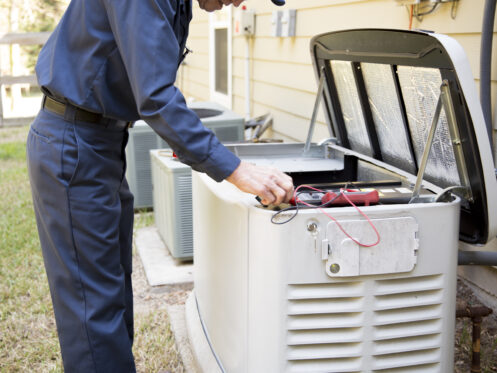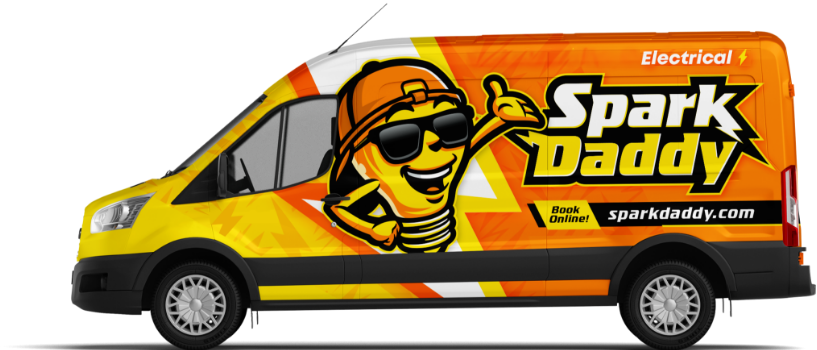Power outages can be an inconvenience that could also pose a safety risk. They disrupt daily activities, hinder communication, and can affect the operation of critical equipment or appliances you need for work or anything important in your home. Therefore, having a reliable backup generator can be a lifesaver. Here are some things to remember when choosing and maintaining a generator for your home.
Types of Generators
Here are the different types of generators:
Portable Generators
These are small, compact generators typically mounted on wheels for easy movement. They run on gasoline, propane, or diesel and are perfect for powering a few appliances or devices during an outage.
Portable generators are relatively affordable, easy to store, and can be used for recreational purposes like camping or outdoor events. However, they are not designed to power an entire home, and albeit versatile, they should never be operated indoors due to the risk of carbon monoxide poisoning.
Standby Generators
Standby generators, popularly called whole-house generators, are permanently installed outside your home and connected to your home’s electrical system. Typically powered by natural gas or propane, these generators automatically activate during power outages and supply electricity to your home. They provide a seamless power transition, ideal for homes with offices or security systems that need to stay running.
Inverter Generators
Inverter generators are a modern option that provides clean and steady power. Like a regular generator, they produce alternating current power but convert it to direct current and back to alternating current using clever electronic circuitry. This process results in a more stable output that is safe for sensitive electronics like laptops, phones, and TVs.
Inverter generators are also preferred for their quiet operation and fuel efficiency. However, being a modern, advanced version of portable generators, they do come with a slightly higher price tag.
Key Features of Reliable Generators
Here are reasons why generators are so reliable.
Fuel Type and Efficiency
The type of fuel a generator uses can impact its efficiency, cost, and availability. Common fuel types include gasoline, diesel, propane, and natural gas. Natural gas and propane are often preferred for standby generators due to their availability and stability, while gasoline and diesel are commonly used for portable generators.
Of course, other types of generators use solar power, hydrogen fuel cells, and even water. However, these eco-friendly options may not be as reliable or cost-effective for large-scale power needs.
Power Output
The power output of a generator is measured in watts and determines how many appliances and devices it can power simultaneously. A generator’s power output should match your household’s needs. Your electrician will calculate the total wattage of the essential appliances you want to power during an outage to determine the appropriate generator size.
Durability and Build Quality
A reliable generator should be built to withstand harsh conditions and long-term use. Look for generators with robust construction, high-quality materials, and weather-resistant enclosures. For example, a generator with a steel frame and solid tires will be more durable and more accessible to move around than one with plastic parts and wheels.
Noise Level
Generators can produce significant noise, which may be a concern for homeowners. Inverter generators are generally quieter than traditional models, making them a better choice for noise-sensitive environments. But, even modern standby generators have become much quieter in recent years, thanks to improved design and sound-dampening technology.
In your search, check the decibel rating of the generators you’re considering and compare them to determine which will suit your needs. Take note of the permissible noise level in your area and choose one that complies with local regulations.
Ease of Use
When selecting a generator, consider how easy it will be to use during an emergency. Look for models with simple controls and clear instructions for starting and operating them. Some generators also come with features like electric start, remote start, and automatic transfer switches, making them easier to use.
Installation Considerations
Discuss your concerns with us, or allow us to answer your important questions.
Site Assessment
The first step in generator installation is knowing where to place it. A generator should be installed in a safe, well-ventilated area, away from combustible materials and any potential sources of water or moisture.
Consider factors such as proximity to the fuel source, ease of access for refueling and maintenance, and potential noise and emissions concerns. This may influence the size and type of generator you choose, as well as any necessary additional equipment or modifications to your property.
Permits and Regulations
Before installing a generator, you must check with local authorities for necessary permits or regulations. Depending on where you live, specific codes and requirements may need to be followed when installing a generator. For instance, in Missouri, your standby generators should be installed outdoors in a structure that offers 5ft of clearance on all sides. Moreover, this structure should have a fire-resistance rating of at least one hour. Failure to comply with these regulations could result in fines or legal action.
Electrical Connections
Connecting your generator to your home’s electrical system requires careful planning and execution. An electrician must safely install a transfer switch to switch between utility and generator power. They must also ensure the generator is properly grounded and connected to your home’s main electrical panel.
Safety Considerations
Safety concerns you should be aware of:
Carbon Monoxide Risks
Generators produce carbon monoxide (CO), a colorless, odorless gas that can be deadly when inhaled. Never operating a generator indoors, including in garages or basements, is important. Even if the windows and doors are open, CO can still build up and risk you and your family. Always place your generator at least 20 feet away from any structure and use a carbon monoxide detector to monitor levels.
Electrical Safety
Improper use of generators can lead to electrical hazards such as shocks or fires. Your electrician will help you find heavy-duty extension cords rated for outdoor use and ensure they are correctly connected to prevent electrical accidents. It’s also important never to overload the generator with too many appliances or devices, as this can damage the generator and potentially start a fire.
Emergency Procedures
Consider developing and communicating an emergency plan for using your generator during power outages with your family. They should know how to operate the generator safely and understand the emergency shut-off procedures. You should also have a designated storage area for your portable generator with a fire extinguisher nearby in emergencies.
Choosing the Right Generator for Your Home
Selecting the right reliable generator comes down to assessing your needs, researching available options, and considering your budget. It will only last and function efficiently if you choose the right size and type for your home. More importantly, you should be able to afford all the costs, including maintenance and fuel, comfortably.
Call Spark Daddy for More Information
Given the complexity and sensitivity of this process, call Spark Daddy today for any assistance you may need. If you live in Ballwin, Pacific, & The Greater St. Louis Area, we can service your generator. Moreover, if you need other electrical services, like circuit breaker replacement and repair, whole-house rewiring, and EV charging station installation and maintenance, we will be glad to help.




